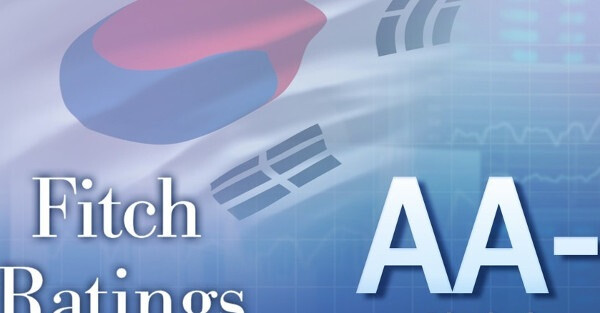
Seoul – Fitch Ratings has reaffirmed South Korea's long-term foreign currency issuer default rating (IDR) at 'AA-' with a stable outlook, the Ministry of Economy and Finance announced on February 6th. This decision reflects the country's robust external position, stable macroeconomic performance, and dynamic export sector, while also considering geopolitical risks and structural challenges related to aging.
However, Fitch has lowered its forecast for South Korea's economic growth in 2024 to 1.7%, down from its previous projection. This adjustment reflects concerns about potential psychological impacts from political uncertainties, as well as the possibility of slowdown in exports due to the new US administration's potential imposition of universal tariffs.
Despite the downgrade in growth forecast, Fitch anticipates a rebound to 2.1% in 2025, driven by improvements in consumption, facility investment, and construction investment.
Fitch acknowledged the ongoing political uncertainties in South Korea, but believes that they will not have a significant impact on the economy and the country's systems. However, the agency cautioned that prolonged political gridlock could negatively affect policy-making efficiency, economic performance, and fiscal soundness.
Regarding fiscal policy, Fitch projects that South Korea's fiscal deficit will narrow to 1.0% of GDP in 2024, compared to 1.7% in 2023. However, the agency highlighted the heightened uncertainty surrounding the fiscal outlook due to the political situation, and expressed concerns about the potential burden on the credit rating from rising government debt due to increased spending related to aging.
On household debt, Fitch noted that it has been gradually improving in South Korea, and believes that risks to the financial market are limited despite the prolonged period of high interest rates. The agency also views risks related to real estate project finance (PF) as manageable, thanks to the government's proactive policy responses and restructuring efforts.
Fitch expects South Korea to maintain a healthy current account surplus of 4.5% of GDP in 2025, and emphasized that the country's strong external position, supported by continuous current account surpluses and net external assets equivalent to 23% of GDP (Fitch's own estimate), underpins its robust external soundness.
The agency also acknowledged the recent weakening of the Korean won due to the strong dollar, but believes that the government's strong policy responses have mitigated the risk of capital outflows.
On North Korea, Fitch noted the heightened tensions and complexities in inter-Korean relations, particularly highlighting the increasingly close ties between North Korea and Russia, which have eased North Korea's international isolation and made diplomatic engagement more challenging.
The Ministry of Economy and Finance welcomed Fitch's reaffirmation of South Korea's credit rating, stating that it reaffirms international confidence in the Korean economy. The ministry believes that this assessment will help alleviate concerns among overseas investors about South Korea's external creditworthiness amid the recent political uncertainties.
Deputy Prime Minister and Acting Minister of Economy and Finance Choi Sang-mok has held several meetings with high-level officials from Fitch, S&P, and Moody's since December to proactively explain the political situation in South Korea and the government's policy responses.
In January, the ministry launched an inter-agency task force to jointly respond to issues related to the country's credit rating, demonstrating its commitment to managing external creditworthiness.
[Copyright (c) Global Economic Times. All Rights Reserved.]






























